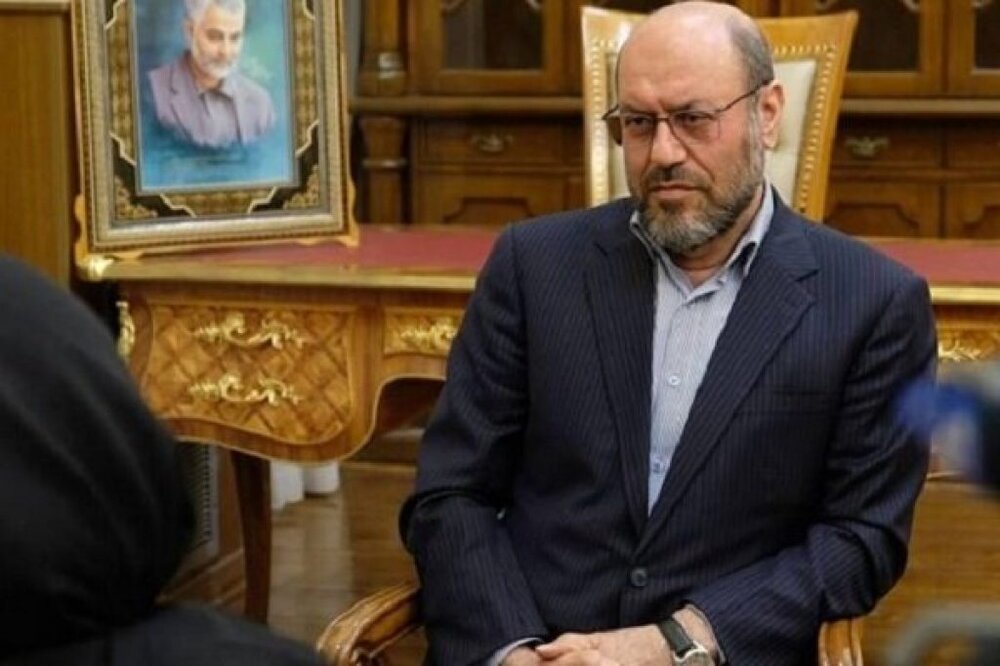If U.S. sanctions continue Iran will change nuclear approach: presidential candidate
‘We still see the same policies from the newly elected administration as we did from the Trump team”

TEHRAN - General Hossein Dehghan, a military adviser to Iran’s leader and Iran’s presidential candidate, told the Guardian, a British newspaper, Iran’s approach to nuclear issue will change if U.S. sanctions continue.
General Dehghan emphasized, “the U.S. was in no position to make conditions, given they left the nuclear deal,” adding Iran “calls for guarantees that the U.S. will not leave the agreement again.”
He believes Joe Biden is continuing Donald Trump’s foreign policies and noted, “Tehran is preparing retaliatory measures to force the U.S. to change its diplomatic trajectory.”
“The Biden administration talked about diplomacy, multilateralism, and interaction in the international arena as well as returning to its international commitments. However, we still see the same policies from the newly elected administration as we did from the Trump team: not lifting the oppressive sanctions against Iranian people, continuing to block Iran oil revenue in foreign banks while we need the money to fight against the coronavirus pandemic. All together this means the continuation of Trumpism in international relations,” he remarked.
Dehghan insisted that the Islamic Republic of Iran would seek to change the course of diplomacy from 19 February – the date it has set to reduce some access for the International Atomic Energy Agency (IAEA) inspectors to its nuclear sites. He also said Iran would demand damages from the U.S. for the impact of sanctions.
His remarks indicated the huge differences remain between the U.S. and Iran, and how the departure of President Hassan Rouhani may make it even harder to restore the nuclear deal, known formally as the Joint Comprehensive Plan of Action or JCPOA.
The IAEA reported that Iran had begun producing small amounts of uranium metal, a process that is banned under the JCPOA. Iran has taken a series of steps to increase the costs to the U.S. of maintaining sanctions. The Biden administration and the Rouhani government have expressed willingness to return to compliance with the JCPOA, but they are at odds of who should take the first step.
Dehghan, who is being sanctioned by the U.S., rejected suggestions that both sides may return to their commitments to the nuclear deal by taking some limited opening reciprocal goodwill gestures – such as the U.S. lifting its block on the Iranian request for a loan from the International Monetary Fund (IMF).
“We planned to have the loan to fight against Covid-19 pandemic, and to purchase medication and medical equipment. That is our right as one of the founders of IMF,” he noted.
“We want to receive guarantees that the Americans will not infringe the agreement again”
He highlighted Iranians don’t trust American politicians and said, “The Americans’ approach has made our nation not trust them. Therefore, we want to receive guarantees that the Americans will not infringe the agreement again.”
“They violated the agreement, so in order for them to return to negotiation, they must first lift unilateral and illegal sanctions against Iran and fulfill their commitments. Then we will have the opportunity to negotiate the issues as regards the damages and the expenses due to America leaving the JCPOA,” he added.
‘Europeans have absolutely no independent stance from America any longer’
He dismissed any idea of Europe as a mediator between Iran and the U.S., saying that since the era of Javier Solana, the EU’s senior diplomat between 1999 to 2009, the EU had lost any distinctive identity. “To be crystal clear, the Europeans have absolutely no independent stance from America any longer.”
He denied that his candidacy showed a growing militarization of Iranian society, pointing out that Churchill, De Gaulle, and Eisenhower – all former military officers – had been elected to head civilian governments. “I am not solely a military person. I am an academic, I taught mainly in non-military centers, I have been an adviser in many social and foreign policy issues. I have been the manager of many economic entities. I have all the characteristics of a military person regarding punctuality, leadership, teamwork, and a goals-oriented approach.”
He asserted, “His election would not mean Iran was ruled by a military junta.”
Regarding building better relations with Iran’s regional rival Saudi Arabia, he quoted the 19th-century British Prime Minister Lord Palmerston, saying: “We have no eternal allies, and we have no perpetual enemies. Our interests are eternal and perpetual, and those interests it is our duty to follow.”
EE/PA
Leave a Comment